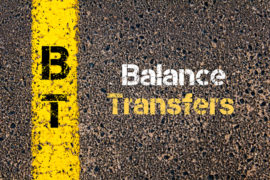The Central Bank of the UAE lowered interest rates by 25 basis points, effective from 1st August, in a move that could bring down the costs of borrowing, enabling loans to be more affordable. However, financial analysts believe that the intervention will not have notable repercussions on the overall health of consumer finances.
The UAE’s banking regulator lowered interest rates in an effort to adhere to the US Federal Reserve, which recently announced its first basis rate cut in more than a decade, with the aim of supporting the economy amid growing pressures from the US-China trade war and other headwinds. The rate reduction coincides with the Central Bank’s repo rate reduction of 25bps on borrowing short term liquidity against certificates of deposits.
Lower interest rates mean that loans could soon become cheaper and that consumers will pay less interest on their credit cards, which is particularly helpful for anyone with a large credit card balance. A decrease can also have an impact on average APR.
Abu Dhabi Commercial Bank’s Chief Economist Monica Malik said that the Emirates Interbank Offered Rate has already been pricing in the latest 0.25% cut. She added: “If a consumer can reduce their debt costs by either of the above, use some or all of the savings to reduce the actual debt load. Interest rates at some point will go higher, and it is important to reduce in good times so as to not feel overburdened in leaner economic times.”
While the cut will make loans more affordable for the masses, Bel Air Investment Advisors’ managing director Kevin Philip does not expect the move to be transformative for the average consumer. He noted: “Instead, the idea is that it will keep the economy moving, the job market tight, and incomes will be more secure or move higher.”
The managing director also urged consumers to evaluate their credit card debt as it’s the perfect time to do so with diminished rates set to remain for the foreseeable future. The latest cut means that credit cards are now a viable alternative to balance transfer options for those looking to lower the costs of their debts.
“If a consumer can reduce their debt costs by either of the above, use some or all of the savings to reduce the actual debt load,” Philip added. “Interest rates at some point will go higher, and it is important to reduce in good times so as to not feel overburdened in leaner economic times.”
In conclusion, analysts believe that the new prevailing rate of between 2% and 2.25% is a net positive for banking consumers in the short term as credit cards, as well as mortgages and general borrowing, will not carry the same financial burden as previously.
The majority of Gulf Cooperation Council central banks also moved in step with the Federal Reserve as their currencies are pegged to the US currency. The repo rate in Saudi Arabia was cut from 300bps to 275bps, while Bahrain also intervened to lower its one-week deposit facility rate to 2.5%.




